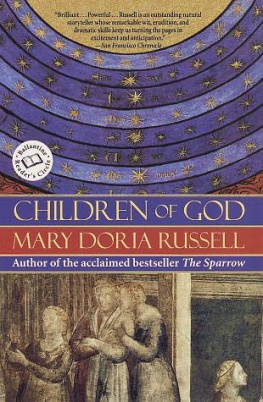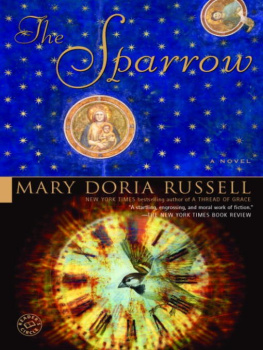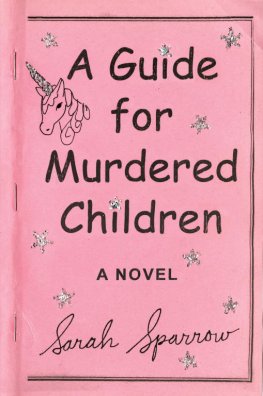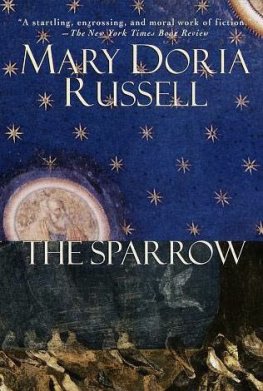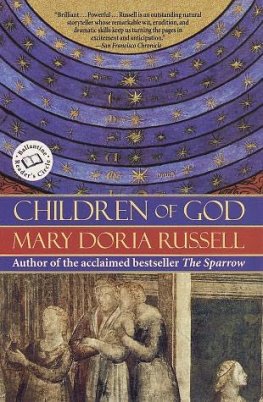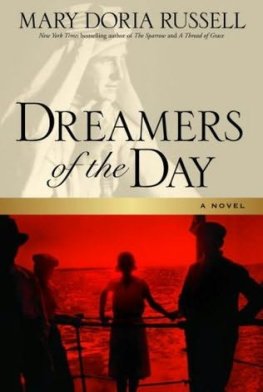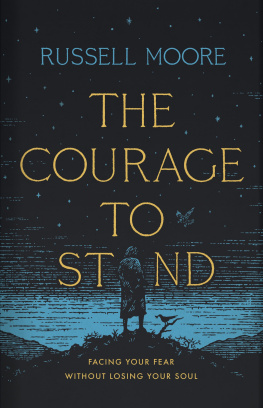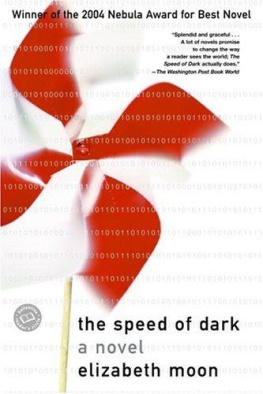Mary Doria Russell's debut novel, The Sparrow, took us on a journey to a distant planet and into the center of the human soul. A critically acclaimed bestseller, The Sparrow was chosen as one of Entertainment Weekly's Ten Best Books of the Year, a finalist for the Book-of-the-Month Club's First Fiction Prize and the winner of the James M. Tiptree Memorial Award. Now, in Children of God, Russell further establishes herself as one of the most innovative, entertaining and philosophically provocative novelists writing today.
The only member of the original mission to the planet Rakhat to return to Earth, Father Emilio Sandoz has barely begun to recover from his ordeal when the So-ciety of Jesus calls upon him for help in preparing for another mission to Alpha Centauri. Despite his objections and fear, he cannot escape his past or the future.
Old friends, new discoveries and difficult questions await Emilio as he struggles for inner peace and understanding in a moral universe whose boundaries now extend beyond the solar system and whose future lies with children born in a faraway place.
Strikingly original, richly plotted, replete with memorable characters and filled with humanity and humor, Chil-dren of God is an unforgettable and uplifting novel that is a potent successor to The Sparrow and a startlingly imaginative adventure for newcomers to Mary Doria Russell's special literary magic.
Prelude
SWEATING AND NAUSEATED, FATHER EMILIO SANDOZ SAT ON THE EDGE of his bed with his head in what was left of his hands.
Many things had turned out to be more difficult than hed expected. Losing his mind, for example. Or dying. How can I still be alive? he wondered, not so much with philosophical curiosity as with profound irritation at the physical stamina and sheer bad luck that had conspired to keep him breathing, when all hed wanted was death. "Somethings got to go," he whispered, alone in the night. "My sanity or my soul"
He stood and began to pace, wrecked hands tucked under his armpits to keep the fingers from being jarred as he moved. Unable to drive nightmare images away in the darkness, he touched the lights on with an elbow so he could see clearly the real things in front of him: a bed, linens tangled and sweat-soaked; a wooden chair; a small, plain chest of drawers. Five steps, turn, five steps back. Almost the exact size of the cell on Rakhat
There was a knock at the door and he heard Brother Edward Behr, whose bedroom was nearby and who was always alert for these midnight walks. "Are you all right, Father?" Edward asked quietly.
Am I all right? Sandoz wanted to cry. Jesus! Im scared and Im crippled and everybody I ever loved is dead
But what Edward Behr heard as he stood in the hallway just beyond Sandozs door was, "Im fine, Ed. Just restless. Everythings fine."
Brother Edward sighed, unsurprised. He had cared for Emilio Sandoz, night and day, for almost a year. Tended his ruined body, prayed for him, watching appalled and frightened as the priest fought his way back from utter helplessness to a fragile self-respect. So, even as Edward padded down the hall to check on Sandoz tonight, he suspected that this would be the soft-voiced reply to a pointless question.
"Its not over, you know," Brother Edward had warned a few days earlier, when Emilio had at long last spoken the unspeakable. "You dont get over something like that all at once." And Emilio had agreed that this was true.
Returning to his own bed, Edward punched up the pillow and slid under the covers, listening as the pacing resumed. Its one thing to know the truth, he thought. To live with it is altogether something else.
IN THE ROOM DIRECTLY BENEATH SANDOZS, THE FATHER GENERAL OF THE Society of Jesus had also heard the sudden, gasping cry that announced an arrival of the incubus who ruled Emilios nights. Unlike Brother Edward, Vincenzo Giuliani no longer rose to offer Sandoz unwelcomed help, but he could see in memory the initial look of bewildered terror, the silent struggle to regain control.
For months, while presiding over the Societys inquiry into the failure of the first Jesuit mission to Rakhat, Vincenzo Giuliani had been certain that if Emilio Sandoz were brought to speak of what had happened on that alien world, the matter could be resolved and Emilio would find some peace. The Father General was both administrator and priest; he had believed it was necessaryfor the Society of Jesus and for Sandoz himself to face facts. And so, by methods direct and indirect, by means gentle and brutal, both alone and aided by others, he had taken Emilio Sandoz to the moment when truth could free him.
Sandoz had fought them every step of the way: no priest, no matter how desperate, wishes to undermine anothers faith. But Vincenzo Giuliani had been serenely confident that he could analyze error and correct it, understand failure and forgive it, hear sin and absolve it.
What he had been unprepared for was innocence.
"Do you know what I thought, just before I was used the first time? I am in Gods hands," Emilio had said, when his resistance finally shattered on a golden August afternoon. "I loved God and I trusted in His love. Amusing, isnt it. I laid down all my defenses. I had nothing between me and what happened but the love of God. And I was raped. I was naked before God and I was raped."
What is it in humans that makes us so eager to believe ill of one another? Giuliani asked himself that night. What makes us so hungry for it? Failed idealism, he suspected. We disappoint ourselves and then look around for other failures to convince ourselves: its not just me.
Emilio Sandoz was not sinless; indeed, he held himself guilty of a great deal, and yet "If I was led by God to love God, step by step, as it seemed, if I accept that the beauty and the rapture were real and true, then the rest of it was Gods will too and that, gentlemen, is cause for bitterness," Sandoz had told them. "But if I am simply a deluded ape who took a lot of old folktales far too seriously, then I brought all this on myself and my companions. The problem with atheism, I find, under these circumstances, is that I have no one to despise but myself. If, however, I choose to believe that God is vicious, then at least I have the solace of hating God."
If Sandoz is deluded, thought Vincenzo Giuliani as the pacing above him went on and on, what am I? And if he is not, what is God?
CELESTINA GIULIANI LEARNED THE WORD SLANDER AT HER COUSINS baptism. That is what she remembered about the party, mostly, aside from the man who cried.
The church was nice, and she liked the singing, but the baby got to wear Celestinas dress, which wasnt fair. No one had asked Celestinas permission, even though she wasnt supposed to take things without asking. Mamma explained that all the Giuliani babies wore this dress when they were baptized and pointed out the hem where Celestinas name was embroidered. "See, cara? There is your name and your papas and Auntie Carmellas and your cousinsRoberto, Anamaria, Stefano. Now its the new babys turn."

